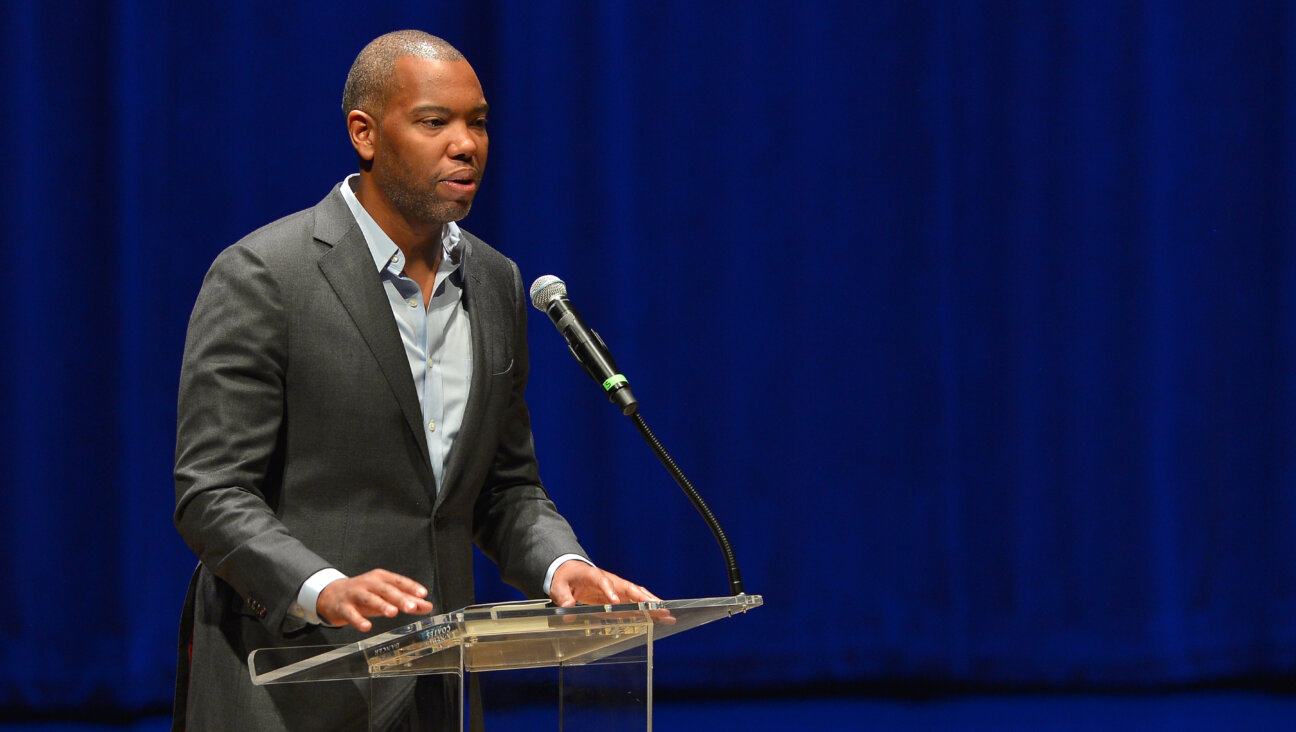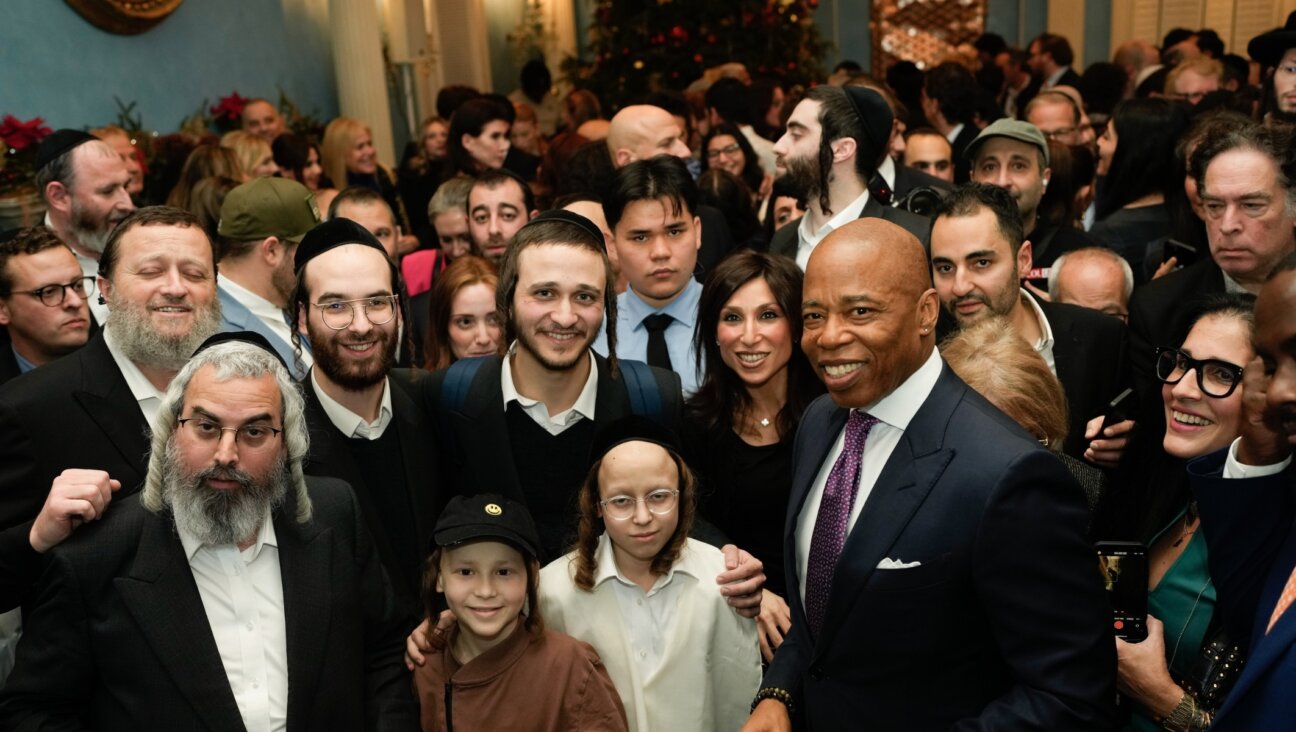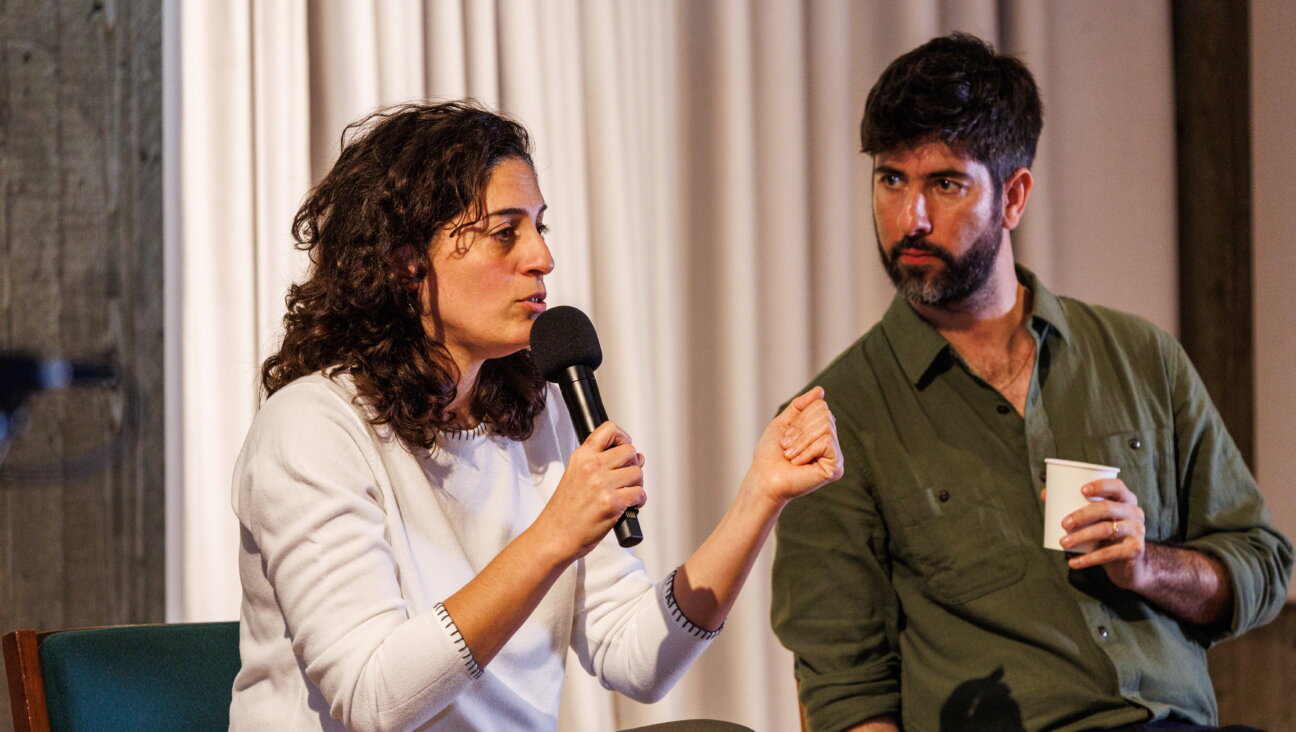Ukraine to punish police chief who demanded list of Jewish citizens

City center, Kyiv, Ukraine.
The Ukrainian government has committed to disciplining a high-ranking police official who requested a list of all Jews in the western city of Kolomyya as part of an inquiry into organized crime.
The official request to the head of Kolomyya’s Jewish community was sent out on February 18, according to a photograph of the document tweeted out on Sunday by Eduard Dolinsky, director of the Ukrainian Jewish Committee, a local advocacy group.
Ukraine’s National Police department demanded from the Jewish community of Kolomiya to provide police the list of all Jews with addresses and mobile phones and Jewish students in universities with addresses and phones. It is explained as fight against transnational criminal gangs pic.twitter.com/re7foVcgHi
Eduard Dolinsky (@edolinsky) May 10, 2020
“Please provide us the following information regarding the Orthodox Jewish religious community of Kolomyya, namely: The organization’s charter; list of members of the Jewish religious community, with indication of data, mobile phones and their places of residence,” read the letter, which was signed by Myhaylo Bank, a high-ranking officer in the national police force who handles organized crime.
The incident generated widespread outrage, with Anti-Defamation League chief Jonathan Greenblatt tweeting that it “evoke[d] the worst times in Jewish history.”
We welcome the announcement from the National Police of Ukraine for an immediate investigation into the shocking police letter asking for the names and addresses of all Kolomiya Jewish community members. Such lists evoke the worst times in Jewish history. https://t.co/uNVRd32Id6
Jonathan Greenblatt (@JGreenblattADL) May 11, 2020
“I was shocked to see the letter that reminded me of the terrible history of Ukrainian Jews,” Dolinsky said. “The letter from the police was absolutely unlawful and threatening [and] we demand a thorough investigation of what happened and serious consequences for the guilty [party].”
Israeli diplomats in Kyiv immediately demanded answers and within a day of Dolinsky’s tweet, Ukraine’s National Police apologized and announced an investigation into the matter, pledging not to allow any “persecution of citizens on national or other grounds.”
The Jewish community of #Kolomia got a most disturbing letter from one of @MVS_UA_en’s officers, asking to prepare “lists of the members”. As representatives of #israel, home of the Jewish people, we couldn’t stay indifferent.@ambassadorlion@IsraelinUkraine https://t.co/A9y6dsxZEf
Yoav Bistritsky???? (@YoavBistritsky) May 11, 2020
In an official statement, the Israeli embassy said that it was “very satisfied” with the way in which the matter was being handled, citing assurances by top officials that Bank “will be punished and an offer, made by the Deputy Interior Minister, to organize anti-Semitism workshops for law enforcement personnel.
“They are trying hard to fight it inside the police, they want to become close to Europe,” Ambassador Joel Lion wrote in a WhatsApp message from Kyiv. “I see the slow progress and we have to encourage them.”
Following the incident, Kolomyya community leader Jacob Zalichker, who had refused to hand over any names, was invited to meet with government officials promising “tough measures” against anti-Semitism.”
“I can’t say they dismissed or punished these policemen since this investigation has not ended yet… so we are waiting for the results of the investigation,” he said, describing how the head of the Regional Administration assured him that he “would not allow such manifestations [of hate] in the future.”
The incident was an “act of open anti-Semitism” which was “bad for the image of Ukraine as a multinational state,” said Inna Ioffe, Executive Director of the Jewish Confederation of Ukraine.
She said that her organization, one of several competing umbrella groups representing organized Ukrainian Jewry, works closely with the police and regularly receives updates on anti-Semitism from the Interior Ministry.
While she does not believe that the police have a racism problem, she did say that during period of economic and social instability, “anti-Semitism always raises its ugly head.”
The incident came came on the heels of a firebombing of a Jewish community center in the southern Ukrainian city of Kherson on April 21. On the same day, the Mayor of the western city of Ivano-Frankivsk called on his city’s police force to expel all members of the Roma community. The Interior Ministry condemned the incident, stating that it was “inadmissible to divide our citizens on ethnic grounds.”
While anti-Semitic violence is infrequent in Ukraine, as in much of the Former Soviet Union, there have been a number of high profile attacks against members of the Roma and LGBT minorities in recent years and in 2018 the Kharkiv Human Rights Protection Group, a civil society organization, has accused the police of cooperating with the ultra-nationalist C14 group, standing by and allowing it to carry out actions against minorities.
Arsen Avakov, the powerful Interior Minister who appointed him, is well known for his ties to far-right groups like the vigilante National Corps, which has been allowed to patrol Kyiv’s streets despite lacking any official standing.
According to the Atlantic Council, Avakov has used such groups to further his political interests by way of “street violence and [political] protests.”
The issue of anti-Semitism in Ukraine is intensely political and inextricably linked to the ongoing Russo-Ukrainian conflict, which was sparked the 2014 Russian invasion following the deposition of pro-Kremlin President Viktor Yanukovych.
Between 2014-2016, Russia ran a sustained disinformation campaign painting Ukraine as a fascist and anti-Semitic state, an assertion rejected by most Jewish leaders there. However, that is not to say that there have not been some worrying trends there. Sparked by the high level of anti-Russian sentiment in the country, Kyiv began promoted a revisionist history celebrating anti-Russian nationalist militias that had collaborated with the Nazis.
And despite the election of Jewish comedian Volodymyr Zelensky to the presidency last year, there is still more tolerance for the far-right than some in the Jewish community are comfortable with. Last October, the country’s Prime Minister and Veterans Affairs Minister attended a benefit concert featuring a well known Neo-Nazi band, sparking outrage.
However, Dolinsky believes, the latest incident isn’t proof of institutional anti-Semitism.
“It’s not that the police are anti-Semitic,” he said. This is “about some ignorant, uneducated and xenophobic people who work in the police.”
JTA contributed to this report.
A message from our Publisher & CEO Rachel Fishman Feddersen

I hope you appreciated this article. Before you go, I’d like to ask you to please support the Forward’s award-winning, nonprofit journalism during this critical time.
We’ve set a goal to raise $260,000 by December 31. That’s an ambitious goal, but one that will give us the resources we need to invest in the high quality news, opinion, analysis and cultural coverage that isn’t available anywhere else.
If you feel inspired to make an impact, now is the time to give something back. Join us as a member at your most generous level.
— Rachel Fishman Feddersen, Publisher and CEO
























